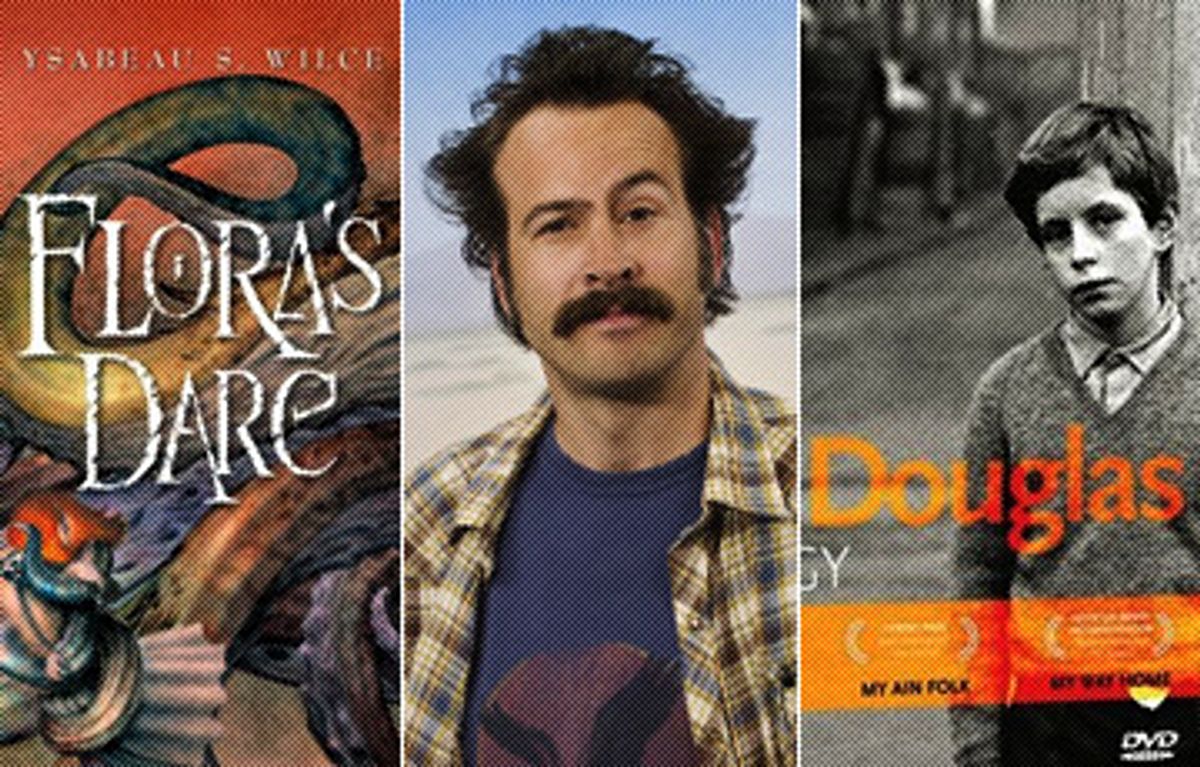 Mitch Hedberg's "Do You Believe in Gosh?"
Mitch Hedberg's "Do You Believe in Gosh?"
Quoting Mitch Hedberg does no justice to his comedy. To say that he was a man who wondered why his Carefree gum hadn't kicked in yet, who said that kids in Venice had "canal smarts," and who wanted to take a ride in a cold air balloon doesn't begin to illuminate how richly funny and blissfully weird he was. At least half the beauty of his humor came from his wry, amused delivery. On perhaps the unlikeliest hit album of the year, "Do You Believe in Gosh?" he drops enough f-bombs to make Mamet blush, but maintains a sweet sense of wonder about water-skiing squirrels and vacuum enthusiasts. His eccentric musings earned him comparisons to everybody from Stephen Wright to Jerry Seinfeld, but the one-of-a-kind comic, who died of a drug overdose in 2005, couldn't be pigeonholed. If he were still around, he'd just have asked why nobody's ever sparrow-holed. And we'd have loved it. -- Mary Elizabeth Williams
"New York Dolls: Photographs by Bob Gruen"
Most people who love the New York Dolls -- the groundbreaking '70s pre-punk outfit that became more famous after its breakup -- love them as much for their look as for their sound. Their style informed, or was at least inseparable from, their music, and this book of vintage photographs by Bob Gruen proves it. What to make of bassist Arthur Kane's 1972 New Year's Eve outfit of white boxers' boots, tights and a skirt that looks like it's made out of Easter-basket cellophane? Or lead singer David Johansen in his high-heeled boots and tiny spangled tops bought from the women's department of Biba? Then there's guitarist Johnny Thunders, resplendent in black leather and floral chiffon, his hair a luxe black haystack. The Dolls' original lineup dissolved in 1975 and has inspired countless rock bands since. But maybe their sound -- vital and awe-inspiring as it was -- is the easiest thing to imitate: No one looks this fabulous anymore, no matter how hard they try. -- Stephanie Zacharek
 Jessica Walter on "90210"
Jessica Walter on "90210"
The perky rich children of the new "90210" may not warrant more than a passing glance, but Jessica Walter's star turn as the Wilson family's eccentric alcoholic grandmother, Tabitha, is absolutely unforgettable. "Look at her ass. You could crack an egg on it!" Tabitha says of her granddaughter. "And I say that because when I was her age, Ricardo Montalban literally cracked an egg on mine. I won't tell the rest of the story, because I don't remember it." Choosing Walter may be the show's only tribute to the often absurd, comical spirit of the original, so naturally the writers can't resist allowing the "Arrested Development" alum to run away with as many scenes as possible. This past week, Tabitha embodied the kooky drama teacher when she briefly filled in for the director of the school musical. "I had a director who'd say, 'If you're not breathing from your ass and reaching to the skies, the back row won't hear you!'" she gushed, and then added, after a pause, "I slept with him." Darren Star, what are you waiting for? Give that slutty, drunken grandma her own show already! -- Heather Havrilesky
"X Films: True Confessions of a Radical Filmmaker" by Alex Cox
In the last 28-odd years, Alex Cox has made only about 10 feature films, but they include chaotic punk classics like "Sid & Nancy," underground delights like "El Patrullero," and a sublime meditation on Los Angeles, armchair philosophy, automobiles and the collective unconscious called "Repo Man." Cox's quasi-memoir, "X Films: True Confessions of a Radical Filmmaker," comes off a bit cocky, or like a DVD extra, by assuming his readers are interested in the minutiae of a filmmaker who prizes his marginality -- the sorts of lenses and lights he used, or scenes cut for good reasons. But that's the price of the ride. Cox's arrogance, temerity and political conviction spill onto the page, and have led to a lot of excitement on the set, even if none of his films have made money. For a dedicated leftist like Cox, the lack of profit sometimes seems like the point. He's worked in conditions as uncomfortable as war-torn Nicaragua, where he made the little-seen biopic "Walker" during the clash between the Contras and the Sandinistas, accompanied by a member of the Clash, Joe Strummer. There's also an inspiring sense of possibility to the story of his years in the trenches as an independent filmmaker's independent filmmaker: Armed with no money, little support from producers, a practically feral aesthetic, and an antagonistic relationship to promotion and income, he still made some terrific movies. -- James Hannaham
 "Infinite Jest" by David Foster Wallace
"Infinite Jest" by David Foster Wallace
In spare moments this week, I've been leafing through the late Wallace's monumental novel, revisiting my favorite parts: Hal's ruminations on envy, the hilarious (and still spot-on) riff on videophones, and most of all, everything to do with that battered but noble recovering addict, Don Gately. This, at least, can never been taken away. -- Laura Miller
******
What's on your list to read, watch, do this week? Share your recommendations with other readers.
******
Catch up on recent Salon Critics' Picks.



Shares